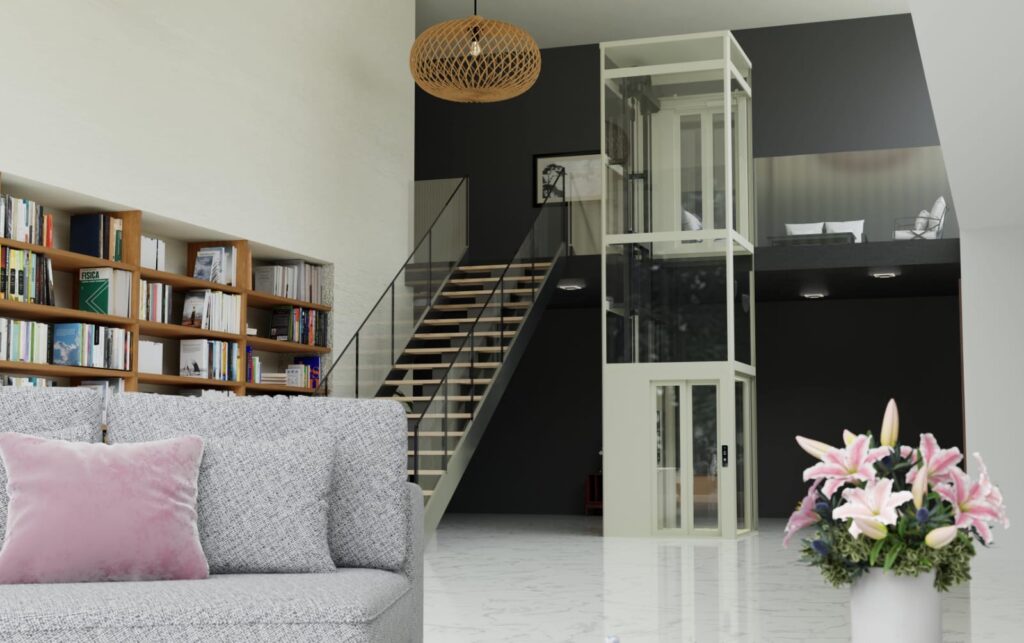Improving Lives with Rheumatoid Arthritis: The Crucial Need for Accessible Homes and Home Lifts

Rheumatoid Arthritis (RA) is a chronic inflammatory condition that affects millions worldwide. It is essential to highlight the need for accessible living spaces that cater to individuals suffering from this debilitating condition. Among the most impactful solutions are home lifts, which can significantly improve mobility and quality of life for those with RA. In this listicle, Mr. Vimal Babu, CEO and Founder, Nibav Home Lifts explores why accessible homes, and the integration of home lifts are crucial for RA patients, and how awareness can help create a more inclusive environment.
- Understanding the Impact of Rheumatoid Arthritis
Rheumatoid arthritis is an autoimmune disease where the body’s immune system mistakenly attacks the joints, causing painful inflammation, stiffness, and in many cases, loss of mobility. Over time, the disease can limit a person’s ability to perform basic daily activities like climbing stairs, walking, or even moving around their own home. - Why Accessible Homes Matter for RA Patients
Accessible homes are designed to accommodate the physical needs of individuals with mobility challenges, making daily life safer and more manageable. For those living with rheumatoid arthritis (RA), accessibility is not just about comfort—it is essential for maintaining independence and reducing the risk of injury. Thoughtful design elements such as wide doorways for wheelchair or walker access, non-slip flooring to prevent falls, lower countertops and kitchen features for easier reach, and accessible bathrooms with grab bars and roll-in showers all contribute to a more functional and supportive living environment. These modifications empower individuals with RA to navigate their homes with greater ease and dignity. - The Role of Home Lifts in Enhancing Mobility
One of the most transformative features for individuals with rheumatoid arthritis (RA) living in multi-level homes is the integration of home lifts. These lifts provide a safe and effortless way to move between floors, reducing strain on joints and minimizing the risk of injury. By eliminating the physical demands of stairs, home lifts promote independence, allowing individuals to navigate their homes without assistance. They also play a crucial role in pain management by preventing joint stress and flare-ups. Additionally, home lifts like Nibav Series 4 and Elite X300 enhance safety by reducing the risk of falls, which can be particularly dangerous for those with RA who may have weakened bones and joints. - The Current Lack of Accessibility in Many Homes
Despite the many advantages of accessible homes and home lifts, they are still not standard in many buildings, leaving individuals with rheumatoid arthritis (RA) struggling in environments that do not accommodate their needs. This lack of accessibility can lead to increased isolation, as difficulty moving between rooms or accessing essential areas may leave individuals feeling trapped. It also raises the risk of injury, as navigating stairs or cramped spaces can be particularly hazardous when joints are inflamed or stiff. Additionally, the absence of proper accommodations limits independence, often forcing people with RA to rely on others for assistance, which can impact their self-esteem and overall well-being. - The Role of Technology in Supporting RA Patients
Advances in technology are making it easier than ever to integrate lifts and other accessibility features into homes. Smart home technology like Alexa can assist individuals with RA by allowing them to control lighting, temperature, and even lift systems like X300 or S4 with just a voice command or app. These innovations can help further improve mobility and reduce the physical effort required to perform everyday tasks. - Call to Action: Raising Awareness on Rheumatoid Arthritis Awareness Day
Rheumatoid Arthritis awareness is an opportunity to not only increase awareness about RA, but also to push for actionable solutions that can improve the lives of those affected by it. Advocating for accessible homes, including home lifts, is a vital step in ensuring that RA patients can live independently and with dignity.
Accessible homes and the integration of home lifts are not just a luxury—they are a necessity for individuals living with rheumatoid arthritis. By raising awareness, advocating for policy changes, and supporting accessible home modifications, we can help ensure that people with RA have the tools they need to live fulfilling and independent lives. Let’s act on Rheumatoid Arthritis awareness and work together to make our communities more inclusive for everyone.








